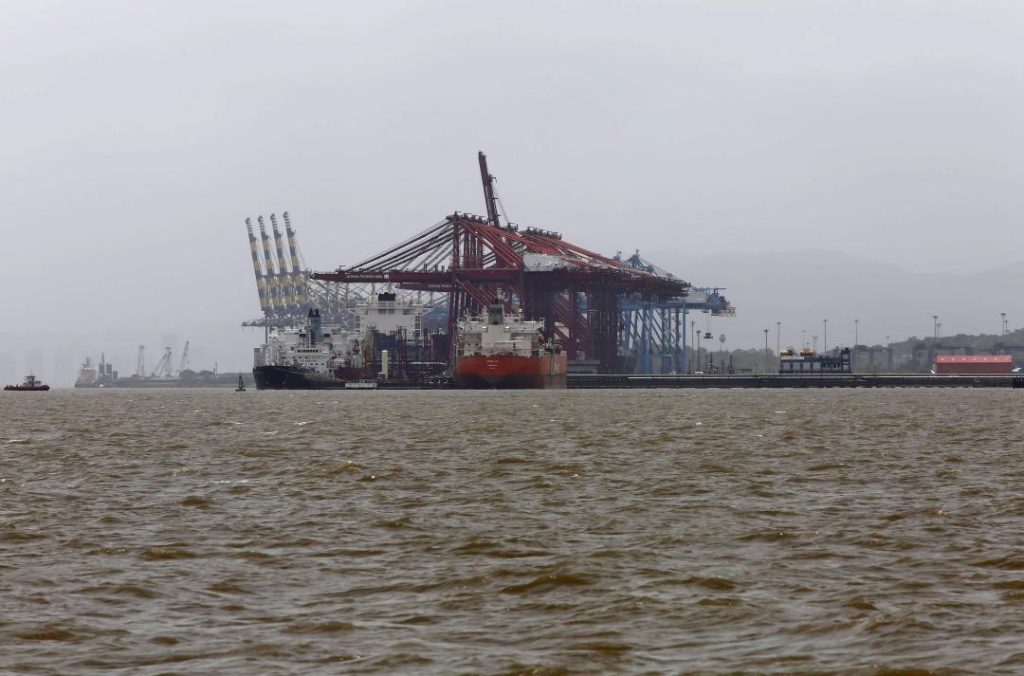
How was ₹800-cr scam undertaken by Tata firm & India’s largest container port’s ex-staff?
The Indian economy has witnessed numerous scams and frauds over the years, leaving a trail of devastation and financial losses. One such shocking scam has come to light recently, involving former staff of Tata Consulting Engineers and India’s largest container port, Jawaharlal Nehru Port (JNPT). The scam, estimated to be worth ₹800 crore, has left experts and authorities stunned.
According to reports, the scam was perpetrated by choosing a deeper 15-metre vessel draft instead of the approved 14-metre, resulting in a loss of ₹1,163 crore. Additionally, the officials opted for a single rate for dredging of different rock types, causing a loss of ₹557 crore. The contractors were also found to have undertaken dredging for excess width, leading to a loss of ₹964 crore.
The scam was uncovered by the Central Bureau of Investigation (CBI), which has flagged cumulative losses exceeding ₹4,200 crore in the JNPA dredging project. Summons are likely to be issued to the accused officials and contractors involved in the scam.
To understand how such a massive scam could have been undertaken, it is essential to delve into the details of the JNPA dredging project and the roles played by the accused officials and contractors.
Background of the JNPA Dredging Project
The JNPA dredging project was initiated to enhance the capacity of the Jawaharlal Nehru Port, which is one of the largest container ports in the country. The project aimed to increase the port’s capacity by deepening the draft of the vessels that could dock at the port. The project was awarded to a consortium of contractors, led by Tata Consulting Engineers, which was responsible for the engineering and execution of the project.
The Scam Unfolds
The scam began with the selection of a deeper vessel draft of 15 metres instead of the approved 14 metres. This decision was taken by the officials of Tata Consulting Engineers and JNPT, who allegedly colluded to increase the draft to accommodate larger vessels and increase the profit margins. The deeper draft allowed larger vessels to dock at the port, increasing the cargo handling capacity and revenue for the port.
However, this decision had a significant impact on the project’s costs. The deeper draft required more dredging material, which increased the project’s costs by ₹1,163 crore. The CBI investigation has revealed that the officials involved in the project manipulated the project’s costs and concealed the excessive expenditure.
Another aspect of the scam was the single rate for dredging of different rock types. The officials opted for a single rate for dredging different types of rocks, which resulted in a loss of ₹557 crore. The CBI investigation has found that the officials did not follow the approved rates for dredging different rock types, leading to an excessive expenditure.
The contractors were also found to have undertaken dredging for excess width, resulting in a loss of ₹964 crore. The excess dredging was carried out to increase the project’s costs and revenue. The CBI investigation has found that the contractors had a vested interest in increasing the project’s costs to maximize their profits.
Consequences of the Scam
The JNPA dredging project scam has significant consequences for the Indian economy. The cumulative losses of ₹4,200 crore have a direct impact on the country’s revenue and finances. The scam also raises questions about the competence and integrity of the officials involved in the project.
The scam has also highlighted the need for greater transparency and accountability in large-scale infrastructure projects. The CBI investigation has revealed that the officials involved in the project were able to manipulate the project’s costs and conceal their actions due to lack of oversight and accountability.
Conclusion
The ₹800-crore scam undertaken by Tata Consulting Engineers and JNPT officials is a shocking example of the corruption and fraud that can occur in large-scale infrastructure projects. The scam highlights the need for greater transparency and accountability in such projects and the importance of strict enforcement of laws and regulations to prevent such incidents in the future.
The CBI investigation into the JNPA dredging project scam is a welcome step towards bringing the accused officials and contractors to justice. The investigation has already flagged cumulative losses exceeding ₹4,200 crore, and summons are likely to be issued to the accused. The trial of the accused officials and contractors is expected to provide a detailed account of the scam and the extent of the losses incurred by the Indian economy.
In the end, the JNPA dredging project scam serves as a reminder of the importance of integrity, transparency, and accountability in large-scale infrastructure projects.






